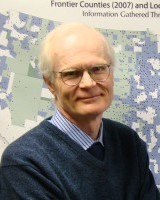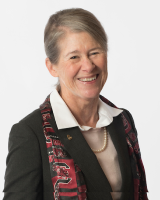How Does the Definition of "Rural" Impact Research?
Date:
Duration: approximately
minutes
The United States Census Bureau (Census) and the Office of Management and Budget (OMB) each have their own definition of "rural." However, both Census and OMB definitions present measurement challenges, with the Census overcounting the number of people in rural areas while the OMB undercounts them. To overcome these measurement challenges, the Federal Office of Rural Health Policy (FORHP) incorporates Rural-Urban Commuting Area codes to create a more nuanced definition of "rural."
During this webinar, Dr. Janice Probst and Dr. George Pink shared recent research from the FORHP-funded Rural Health Research Centers to highlight the importance of rural definitions and how those definitions impact research. Our presenters provided advice for "What should I take into account when determining rural definitions for my research study?" and "As a non-researcher, what should I look for in rural definitions when reading a study or brief?"
Presenters
 George H. Pink,
PhD
George H. Pink,
PhD
Dr. Pink is a Research Professor in the Department of
Health Policy and Management at the Gillings School of
Global Public Health, Deputy Director of the North
Carolina Rural Health Research Program, and Senior
Research Fellow at the Cecil G. Sheps Center for Health
Services Research, all at the University of North
Carolina at Chapel Hill.
 Janice (Jan) Probst, MS,
PhD
Janice (Jan) Probst, MS,
PhD
Dr. Probst is a former Director of the Rural & Minority
Health Research Center (RMHRC) at the University of
South Carolina. Across nearly 20 years of leading the
RMHRC, Dr. Probst designed and collaborated in research
projects using a variety of metrics for identifying
rural persons and places.
Dr. Probst completed her undergraduate education at
Duke University and her graduate training at Purdue
University (MS) and the University of South Carolina
(PhD). Recognition for her rural health work includes
the "outstanding researcher" (2008) and "volunteer of
the year" (2016) awards from the National Rural Health
Association, and the Martin Luther King Jr. Social
Justice Award (faculty) from the University of South
Carolina (2013).
